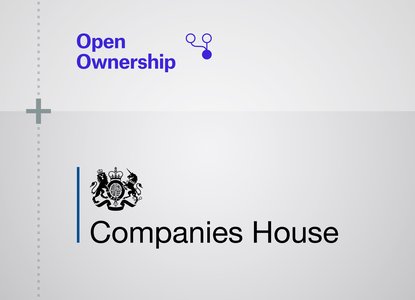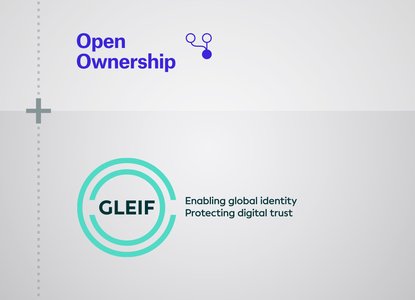Launch of the Open Ownership Principles

Today, Open Ownership publishes 12 principles for effective beneficial ownership disclosure, defining what ‘good’ looks like for beneficial ownership transparency. Implemented effectively, these principles will be a game changer for creating an environment where company ownership data is accessible and traceable globally.
Effective disclosure means generating high quality, reliable data to maximise usability and minimise loopholes. These principles are core tenets of effective disclosure, and describe a range of policy, legal, and systems data and technology characteristics that effective disclosure regimes have. Disclosure regimes sit within a wider political economy context, which is considered throughout Open Ownership’s assistance to governments implementing beneficial ownership transparency. For more information, please see Open Ownership’s Implementation Guide.
Since its inception, Open Ownership has been at the forefront of the global push towards greater transparency on the real owners of companies, by identifying challenges and assisting governments in overcoming these to make real progress towards global beneficial ownership transparency. The lessons learned from implementing beneficial ownership transparency at country level are the foundation for the 12 principles. Together they provide a framework for effective beneficial ownership disclosure.
An effective disclosure framework
Governments are pursuing beneficial ownership transparency to tackle corruption, promote economic growth and ensure effective taxation. To achieve these goals, the data must be used within law enforcement investigations, journalists’ exposes, civil society monitoring and public and private sector due diligence. Therefore, the data that governments generate needs to be consistently high quality as well as easy to search, use and cross-reference globally.
The Open Ownership Principles
Each principle is based on the needs of potential users of beneficial ownership data, and responds to key policy demands that drive governments to pursue beneficial ownership reform. The principles are the product of Open Ownership’s work with almost 40 countries to advance beneficial ownership transparency and break down the complexity in implementing beneficial ownership transparency in certain contexts. The principles are a guiding framework for effective beneficial ownership disclosure that unites three key focus areas: reform of the legal framework, creation of technical systems, and the publication of data. Although work on each area is often undertaken by different experts and departments, the three must work in synergy for the resulting data to be useful.
The principles have been developed by Open Ownership’s team of policy experts, researchers, software developers, open data architects and advocacy strategists, and are grounded in established practices for publishing open data. The Open Ownership team continues to learn from technical assistance to governments while also reviewing available research and evidence. The principles build on our previous publications, and take a more holistic view of reform to supersede our Five Characteristics of Effective Beneficial Ownership Data.
Louise Russell-Prywata, Senior Programmes and Policy Manager, explains the importance of the principles for Open Ownership’s work: “The 12 principles for effective disclosure consolidate Open Ownership’s extensive technical and policy knowledge about ‘what good looks like’ for beneficial ownership disclosure. At a time when governments coping with the COVID-19 crisis are upscaling procurement and mobilising financial support to businesses, we are seeing the importance of knowing who owns companies increasing further. The principles create a framework around which we can scale up our support and efficiently target our resources to meet the needs of implementers.”
This launch is the start of a larger conversation as the principles will continue to actively develop over the coming months. Under each of the 12 principles sits a set of indicators and narrative assessment questions, built on those used within our technical assistance. We will share these with partners for input and discussion over the coming weeks, including via webinar. If you are interested in being part of these conversations, please email our Policy and Research Manager Tymon Kiepe at [email protected].
The Open Ownership principles:
- Beneficial ownership data should be freely accessible to the public via a central register
- Beneficial ownership should be clearly and robustly defined in law
- Disclosure should comprehensively cover all relevant types of legal entities and natural persons
- Low thresholds should determine when beneficial ownership and control must be disclosed
- Sufficient information should be published to understand full ownership chains
- The identity of people and companies should be unambiguous in collected and published data
- Measures should be taken to verify data to improve its accuracy and completeness
- Information should be kept up to date, and changes submitted in a timely manner
- Historic records should be kept and published
- Adequate sanctions and enforcement should exist for noncompliance
- Stakeholders should be engaged throughout implementation
- Disclosure processes and practices should be iterated to deliver improvements and close loopholes
Read more about the principles here
• Photo by Ricardo Gomez Angel on Unsplash
Related articles and publications
Publication type
News article
Sections
Implementation,
Research


